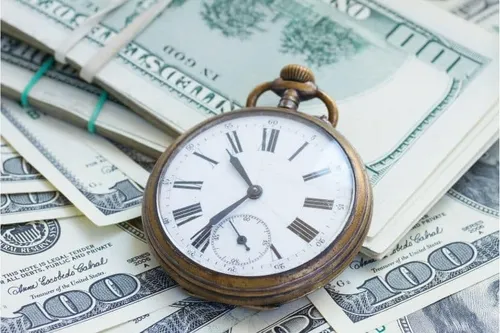In our world there are two base mediums of exchange. One is time the other is money. You can pay for things using either one. The principle of paying in money is “high bid wins” and the principle of paying in time is “first come, first served.” The first principle is the motto of the free-market and the second is the motto of government and bureaucracies. One leads to innovation and increased production while the other just leads to progressively longer lines. Can you guess which system does which?
“High Bid Wins”
“High bid wins” is the principle of the free-market; it is the principle of paying in money. The best way to understand it is to think of an auction. We all know that in an auction buyers compete against each other to buy a particular item. The buyers voluntarily bid money on the item until there is only one buyer left, the highest bidder. This is the buyer who gets to take the item home. Now, think of the entire economy as one giant auction; this is basically what a pure free-market economy is. The prices set are a result of the buyers bids because this allows people to understand the value of things in the eyes of other people. In this system, the system of the free-market, goods and services are paid for with money. This is advantageous to people whose time is valuable.
“First Come, First Served”
“First come, first served” is the principle of government and bureaucracies. In this system people pay in time. It also gives a greater degree of control to whoever is in charge of the line. A great way to understand this principle is to think of a post office or DMV. At a post office there are more often than not lines. If you don’t get there first to get to the front of the line, then you will have to wait. Maybe you should have allocated more time for the task and gotten their earlier. (This is like the system of “high bid wins” except that the bids are in time; the person who allocates — bids — the highest amount of time wins.)
Money is excluded from this system. There aren’t any express lines at the post office where you can pay an extra $10 to get to the front of the line. This is not allowed because it would create envy and break line etiquette. This system of paying with time, the system of government, is advantageous to people whose time is not valuable.
The Incentive Problem
Each system comes with a different set of incentives. To start, let’s look at the system of “high bid wins.” In this system the prices for items will reflect their demand because the prices are based on the buyer’s competing bids for the items. Some items will inevitably be high-priced because they are heavily demanded. These high prices will attract producers to begin producing more of these heavily demanded items because they want a piece of the profit pie. It also encourages innovation because if a producer can come up with a new, better way to produce something, their costs will be lower and their profits higher. Then all of this increased production and innovation will lead to an increase in supply and the price of those heavily demanded items will fall to their market clearing price. All of this is possible because of the “high bid wins” system where people pay in money.
The incentives under the “first come, first served” system are very different. In this system, items that are heavily in demand are not marked by high prices, but instead by long lines. The lines are representative of all the people that are bidding their time on a certain item. Under this system are there any incentives for people to innovate or increase production? I don’t see any. Why should producers care how much time other people spend on something? There are no profits they can gain by shortening the line. People naturally don’t like to work. That is why they need incentives to do it. There are no incentives for producers to work harder to shorten the line; they can’t add extra time onto their life by decreasing the amount of time people spend in lines. Therefore, people tend to work less hard and this exacerbates the problem of the long lines; the lines will keep getting longer. This is precisely why socialist countries are marked by long lines.
Conclusion
In life, we can either pay with money or with time. Paying with money is the principle of “high bid wins” and the principle of the free-market. Paying with time is the principle of “first come, first served” and is the principle of government/bureaucracies. The principle of “high bid wins” will lead to incentives that will create a prosperous economy. The principle of “first come, first served” will not. This is yet another reason why government run enterprises will not lead to a prosperous society.

Leave a Reply